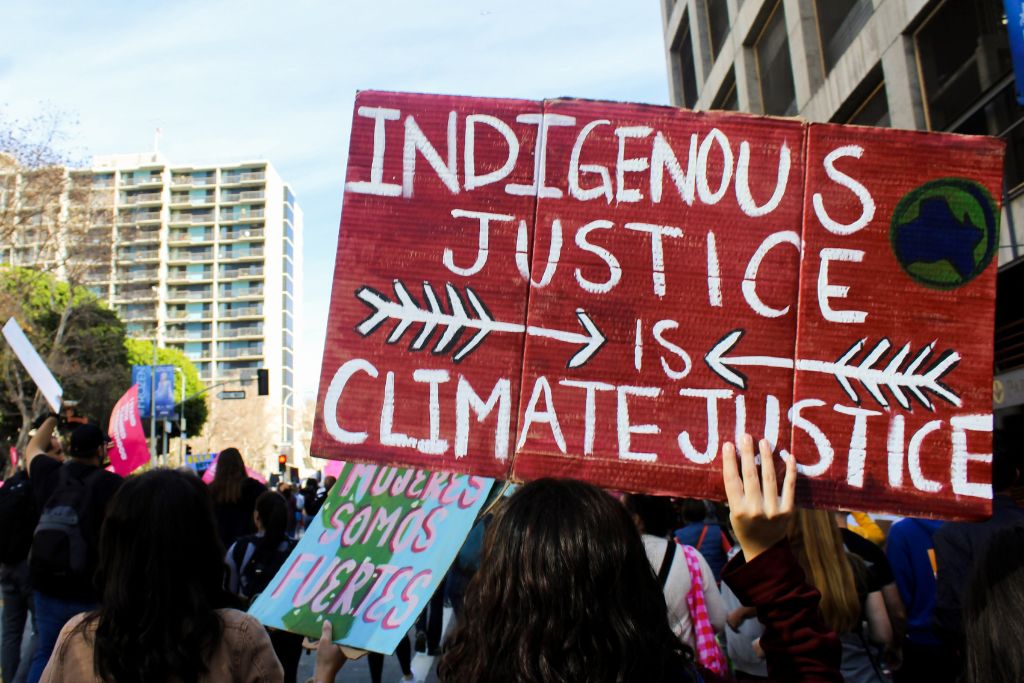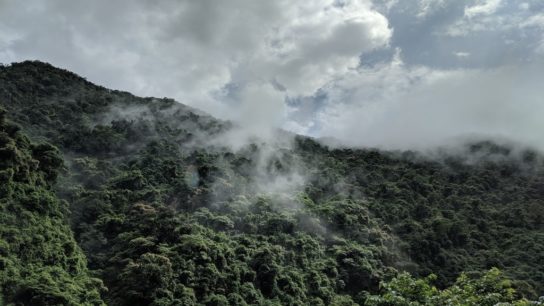The 28th Conference of the Parties (COP28) unfolds in Dubai, where Indigenous leaders from Canada take center stage to share the profound challenges they face due to a warming planet. Disappearing salmon stocks, dwindling caribou herds, wildfires, and a shifting landscape paint a stark picture of the consequences of climate change on their traditional territories.
—
Beyond Material Losses
Dane de Souza, the climate change policy advisor with the Métis National Council, emphasizes that the repercussions extend far beyond material losses. ‘’It impacts how we gather at the table as a family, it impacts how we pass on our knowledge and our memories to our children from our grandparents and beyond. It impacts how we live. It impacts how we exist, and it impacts how we enjoy life in Canada,’’ he passionately expressed during a side event at COP28.
Advocating for a Seat at the Table
Despite the emotional toll, Indigenous leaders are pushing for more than just acknowledgement of their struggles. They are advocating for a stronger voice in shaping global strategies to combat climate change. There is a recognition that no amount of financial compensation can adequately address the intangible losses suffered by Indigenous communities. Raylene Whitford, a director with the Canadian Sustainability Standards Board, expressed pride in seeing so many Indigenous voices at COP28. “Historically, we’ve been excluded from these types of conversations. So, it’s so great to see Indigenous people from so many different countries here at the conference,” she noted.
From Action to Strategy
The global stage provided by COP28 is an opportunity for Indigenous representatives to collaborate, share ideas, and discuss the critical issues of environment, energy, and economic prosperity. Karen Ogen, Chief Executive of the First Nations LNG Alliance, emphasized the need for careful consideration in navigating economic reconciliation and climate initiatives in Canada. “Our First Nations are continuously having to manage poverty, and we want to be able to start to manage prosperity,” Ogen said.
The recently released National Climate Strategy by the Assembly of First Nations outlines seven priority areas, emphasizing the importance of prioritizing Indigenous knowledge and ensuring preparedness for emergencies. This proactive approach aligns with the broader global effort to address the impacts of climate change.
Indigenous Leaders Seek Recognition for Loss and Damage
During the initial days of COP28, a tentative deal was reached to create the world’s first climate damage fund, designed to assist developing countries in coping with climate change impacts. Although Canadian communities may not qualify for this fund, Indigenous leaders stress the importance of having their voices heard. There is a growing international focus on the issue of loss and damage from climate change, and Indigenous leaders want to ensure that their unique perspectives and experiences contribute to the global conversation.
You might also like: Explainer: What Is ‘Loss and Damage’ Compensation?
Guardians of the Earth
Myrle Ballard, director of Indigenous science at Environment and Climate Change Canada, aptly captures the urgency of their role. “We have to be the voice for the water. We have to be the voice for the land,” she said.
As COP28 progresses, the world watches to see if the international community will not only acknowledge but actively incorporate Indigenous wisdom and experiences into the global fight against climate change. The demand for a stronger Indigenous voice is a call for justice, resilience, and a sustainable future for all.
Indigenous communities, being intricately connected to their environments, possess a wealth of traditional knowledge that enriches our understanding of sustainable practices and resilience. Recognizing their unique perspectives is not just a matter of representation; it is a crucial step toward more effective climate strategies.
Indigenous voices bring to the light the nuanced impacts of climate change on cultural identity, intertwined with the very ecosystems they inhabit. By actively involving Indigenous leaders in negotiations, the global community can move beyond tokenism and tap into a wealth of wisdom that can inform policies with a deeper understanding of the intricate balance between human societies and the environment. Ignoring these voices not only perpetuates historical injustices but also risks incomplete and less effective solutions in the face of our planet’s climate crisis.
You might also like: Indigenous Climate Storytelling Holds the Key to Climate Change Solutions in the Global South


















